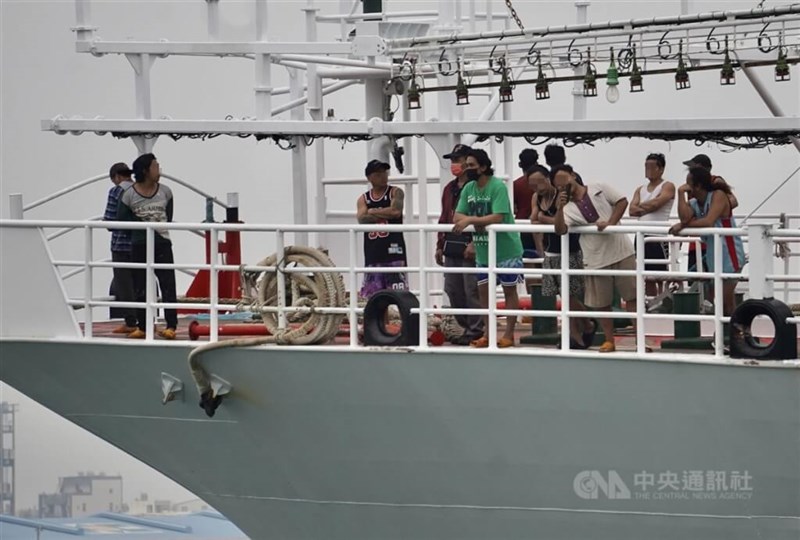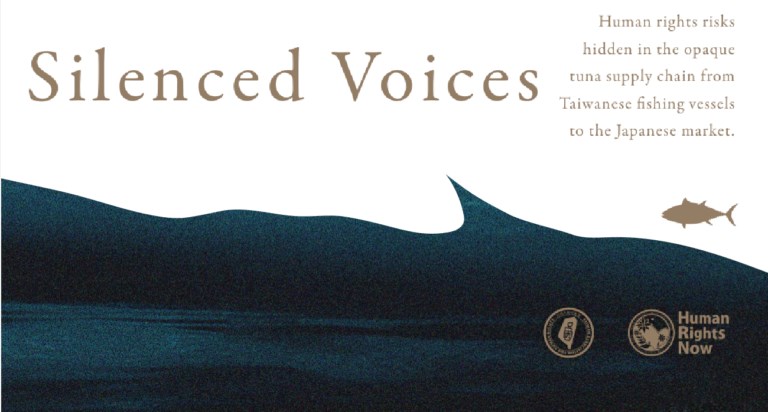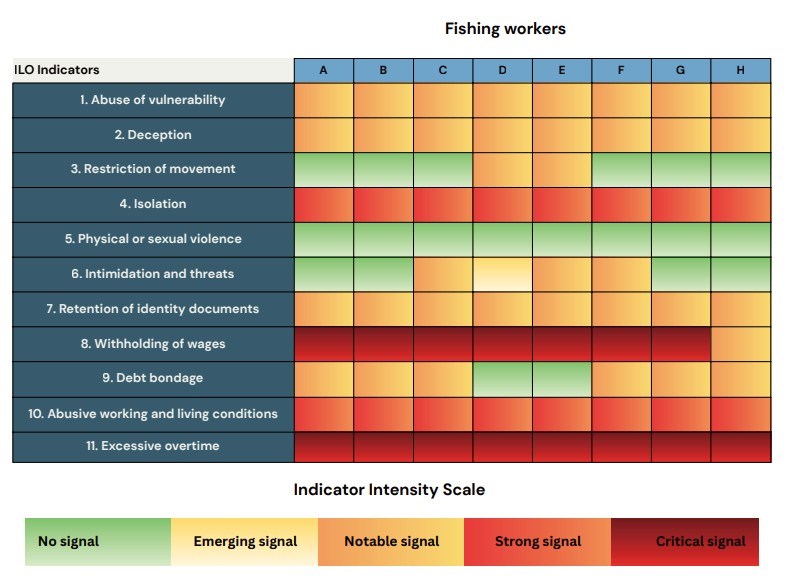Forced labor on Taiwan fishing boats linked to Japan seafood market: Report

Taipei, Oct. 15 (CNA) A joint report by Taiwanese and Japanese NGOs released Wednesday found that migrant fishers working on two Taiwanese distant-water fishing vessels may have been subjected to forced labor, including withheld wages and excessive working hours.
The report, compiled by the Taiwan Association for Human Rights (TAHR) and Japan-based Human Rights Now, was based on interviews with mostly Indonesian crew members from two Taiwanese-flagged vessels - You Fu (銪富) and Yu Shun No. 668. (裕順668號).
At a news conference in Taipei, Matthew, a former You Fu crew member, said he had been told he would be paid monthly via bank transfer and that payslips showed his family receiving US$250 each month. In reality, he said, wages were only paid in cash when the vessel docked in Taiwan.

According to the report, 10 Indonesian crew members from You Fu alleged at an August 2024 press conference in Taipei that they were owed 11 to 15 months of wages, totaling about US$80,850.
Another former You Fu crew member, Julkifil, said they often worked 18-20 hours a day, despite contracts guaranteeing at least eight hours of daily rest.
A third, Astanu, said there was no Wi-Fi onboard, leaving them unable to contact their families except briefly while in port.

TAHR senior researcher Shih Yi-hsiang (施逸翔) said the testimonies showed You Fu met eight of 11 indicators of forced labor identified by the International Labour Organization, including deception, excessive overtime and withheld wages.
As for Yu Shun No. 668, the report said 12 foreign crew members were stranded in Taiwan in October 2024 after the shipowner went bankrupt, leaving them unpaid and jobless for months. The workers endured poor living conditions with sporadic power and water cuts. Control Yuan member Chi Hui-jung (紀惠容) has launched an investigation.
Prosecutors investigating the Yu Fu case found that its catch was sold by Taiwan-based seafood exporter FCF Co. to Japan through FCF's subsidiary, FCN.
Meanwhile, Yu Shun No. 668 was previously part of an ultra-low-temperature longline fleet operated by Japanese seafood trader Singaz Japan.
In a statement, TAHR urged the Taiwanese government to abolish the current employment system that classifies migrant distant-water fishers as "foreign workers," and extend to them protection under the Labor Standards Act and the Occupational Safety and Health Act.
It also called for legislation requiring all distant-water vessels to install Wi-Fi so crew members can file complaints and contact their families.
Momori Nakagawa of Human Rights Now said that although Japan has laws against illegal, unreported and unregulated (IUU) fishing, those regulations focus solely on resource management and do not address human-rights violations.
Human Rights Now Secretary-General Ryutaro Ogawa urged the Japanese, Indonesian and Taiwanese governments to establish a joint "human-rights violation accountability system," saying such problems can only be resolved through international cooperation.
In a written response to CNA, Taiwan's Fisheries Agency said it intervened in both cases after receiving complaints, and all migrant crew members have now received the wages they were owed.
The agency said both are now being investigated by law-enforcement authorities after it filed reports of suspected forced labor.
-
Business
Taiwan to raise natural gas prices by 3% on average in March
02/28/2026 09:14 PM -
Politics
Taichung mayor to visit U.S. in mid-March
02/28/2026 08:52 PM -
Politics
Taiwan closely monitoring situation after U.S., Israel strike Iran: Lai
02/28/2026 08:31 PM -
Politics
Taipei Mayor Chiang Wan-an remembers 228 Incident, seeks to transcend tragedy
02/28/2026 08:23 PM -
Politics
Taiwan raises Israel travel alert amid U.S.-Israel strikes on Iran
02/28/2026 08:01 PM